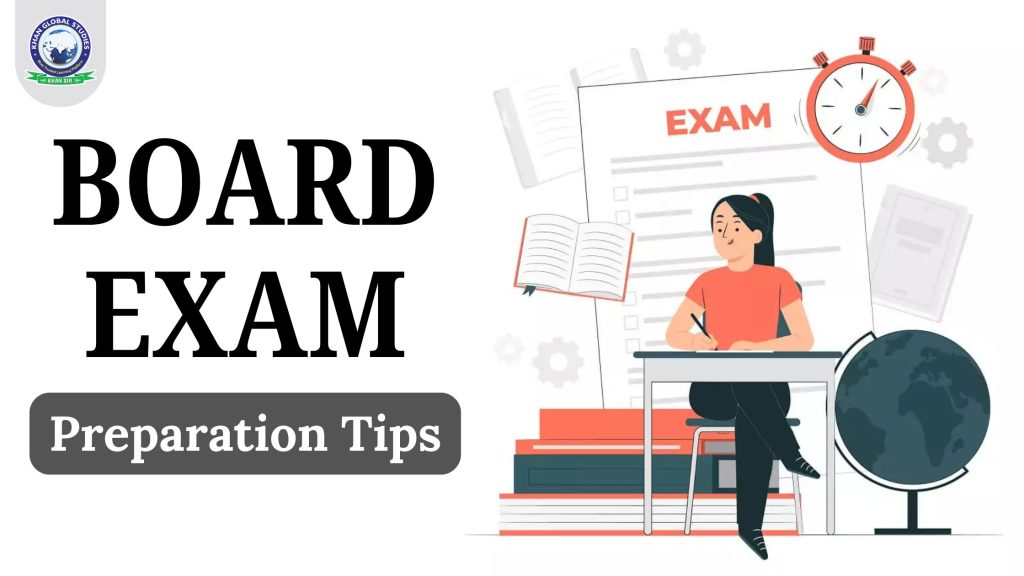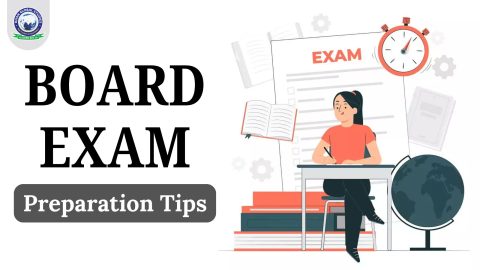The word board exam makes your heart beat faster. This is the time when the pressure mounts and words like “life-changing” or “important” are heard from all sides. Parents remind you to study, teachers stress its importance. Sometimes it all seems too much. It is common to lie awake at night worrying about incomplete chapters or fearing that you will forget everything during the exam. But don’t panic! You are not alone. With the right strategy and preparation, this challenging time can be turned into success.
Anxiety and fear before exams: Common but overcomeable
As exams approach, it is natural to feel stress and uncertainty. The question in every student’s mind is, “Will I remember everything?” or “What if I don’t perform as expected?”. The way to overcome these fears is not to just study more, but to study smarter. It is important to create the right strategy for yourself, manage your time well and take care of your mental and physical health.
What’s special about this blog?
In this blog, we will give you practical and effective tips to prepare for board exams. These are not just theoretical tips but techniques that have helped thousands of students. So, let’s start this journey together and turn fear into focus, so that you can take the exam with confidence.
When and why are board exams conducted?
Students face board exams at two crucial junctures:
- At the end of Class 10: Class 10 exams help you decide your career path. Based on its result, you decide which stream will be better for you – science, commerce or humanities.
- At the end of Class 12: Class 12 board exams are even more important as they determine your future course and professional opportunities. If you are interested in courses like medicine, your performance in these exams can help you get admission to a good college.
Importance of board exams
- Stream Selection: Class 10 results help you decide which stream will be better for you in the future.
- College Admission: Class 12 marks are the basis for admission to many professional courses and colleges.
- Scholarships: Scoring good marks can help you get scholarships, which reduce the cost of studies.
- Career Management: Board results lay the foundation of your career.
- Confidence: Better performance boosts confidence and prepares you for future challenges.
Smart Tips and Strategies for Board Exam Preparation
Board exams are an important milestone, but the right preparation can make it easier. The tips below will help you:
- Start Early, Don’t Rush – Putting off preparation till the last minute is a big mistake. Starting on time will give you a chance to understand topics in-depth, revise and avoid stress. Think of it like a marathon- you can’t run 42 kilometres without months of preparation!
- Create a Study Schedule – Divide your syllabus into smaller chunks and assign a topic for each day. This will help you cover the entire syllabus on time and not feel overwhelmed.
- Sort out Important Topics – Gather all the important notes and handouts in one place to make last-minute revision easier. Mark important topics from NCERT books, solve the exercise questions given at the end of each chapter to develop a deeper understanding.
- Understand, Don’t Memorise – Try to understand topics deeply instead of memorising. This will not only help you remember but also use them in different situations.
- Use Flashcards – Use flashcards to remember important topics. Convert them into short bullet points, lists, diagrams, and formulas. Flashcards will help you sharpen your memory and memorize long paragraphs quickly through short triggers. Use them when you don’t have time to revise thoroughly.
- Create Flow Charts and Diagrams – Visuals are extremely helpful in your preparation. Try to write down everything you know about a topic and highlight the parts where you are weak. Consolidate your notes on a page and convert them into diagrams and flow charts. This will help you remember things faster at exam time.
- Solve Previous years’ Question Papers – Solve old question papers and get familiar with the exam format. Practice answering within the given time limit and then cross-check your answers with your school notes. This will help you understand your preparation level.
- Don’t Forget to Take Breaks – Constant study tires the brain. Take a 10-minute break after 50 minutes of study. Use this time to stretch, have a snack, or relax.
- Take Care of your Health – Make nutritious food, enough water, and good sleep a part of your routine. Don’t compromise on sleep, as it can affect your concentration.
- Stay Positive and Manage Stress – To reduce stress, take deep breaths, meditate, and remind yourself that it’s normal to make mistakes. Your hard work matters the most.
- Study in ZGroups, But Avoid Distractions – Studying with friends can be helpful, especially when you ask questions or explain things to each other. But avoid distractions and set clear goals for studying.
- Use Mnemonics and Visual Aids – Use mnemonics (such as shortcuts or poems) and diagrams/charts to remember complex information.
- Revise – Revise what you’ve learned. Revise by taking flashcards, quizzes or explaining yourself.
- Relax – Take rest on the night of the exam. Avoid last-minute studying. Appear for the exam with a calm mind and confidence.
Conclusion
Preparing for board exams can be easy with the right plan and approach. Understand the syllabus, study intelligently and maintain your mental and physical health. Remember that every small step takes you closer to success.
If you need any guidance, reach out to https://khanglobalstudies.com/ask-doubts to get your problem solved.





